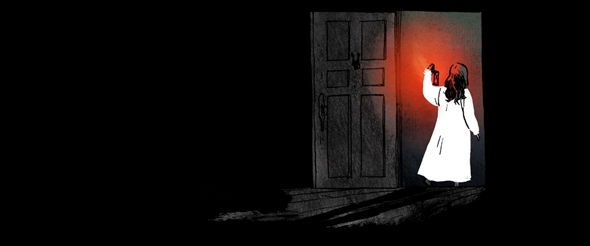On Twitter, someone linked to this post (I want to say it was Kelly Link, but it was sometime last week, and I’m pretty sure Twitter doesn’t exist more than 24 hours into the past) and when I finally read it, it felt like sinking into a chair I forgot I owned, and thinking, “When did I put this in storage? Why isn’t this in my living room?”
Anyway, the post is Reality Affects by Matthew Cheney, talking about another essay (What Should Fiction Do by Bonnie Nadzam).
When you hang out with a lot of readers and writers, it’s really easy to get caught up in what others think fiction ought to be. If there’s a formula, if there’s a map, if there is a right and a wrong when it comes to shaping a story, that makes things easier. If there’s a way to do it right, wouldn’t you want to do that? If someone says they know how to write a story that will get an agent’s attention, that will be a bestseller, well, heck, maybe they do know! Maybe if you do what they say, you’ll sell your next book, and everything will be okay.
Writing from inside these conversations, while surrounded by movies, while seeing each book-of-the-moment pass by, at some point you might accidentally absorb all these rules about stories. You have to have an inciting incident. Your character has to go on a journey. They must refuse the call and have a thousand faces. Your protagonist must try and fail and try again, try bigger, fail harder. There must be scenes and sequels, action and cliffhangers, emotional processing, a familiar shape like a mountain, like a bell curve…
But is that all? Of course not.
I don’t think I even noticed that I’d absorbed and built up these rules around me, until they started to chafe. I wanted to follow patterns, to obey plot structure, and by God, I wanted to do things right. If I’m going to do a thing, I better do it right. I will listen, I will take notes, I will show up and do it exactly as you’re supposed to. I will analyze and figure out what the heck a chapter is, where and how often to drop foreshadowing, how much to worldbuild, when exactly to have the protagonist hit their dark night, their nadir, and when I finally slog through writing this book, I’ll have done it up right.
Oh, Lord, is it tiring and deadening to think like that. Do it right? What’s that even mean? everything is made up. Like, all of art is a construct of one sort or another. The rules come from the last group of people who were making it up as they went along. They looked at what had been done, and did something a little different. And a little different again. Or a lot different! Transgressing the established formula speaks to the thing you’re transgressing as well as asking a reader to be more conscious of what they’re reading. And I find that very interesting. Not the idea of breaking all the rules for the sake of breaking things, but not being beholden to them.
Literature deserves more than formulas, more than cinema. The written word can do interesting and complex things, different from the mapped out swoop of a story, something other than fake cinema. Written stories can do so much more than what’s popular and salable right at this moment. Beyond all that writing advice that’s in digestible bullets and charts. And I’m very interested in all that lately, freshly, again.
Don’t get me wrong: I’m not saying that literature isn’t doing any of this. Only that’s it’s very easy to find myself suddenly wearing blinders I didn’t know I’d picked up, and get trapped into thinking X the only way to do writing right. Cheney’s essay was like a cold splash of water to wake me up and remind me of the things that excite me most. I read it at a good time, when I was feeling weary and sort of confused about this one project, and realized I was weighted down by the idea of doing all these things right.
It’s nice to be reminded that “right” is debatable, and so is the idea of what fiction should do.

